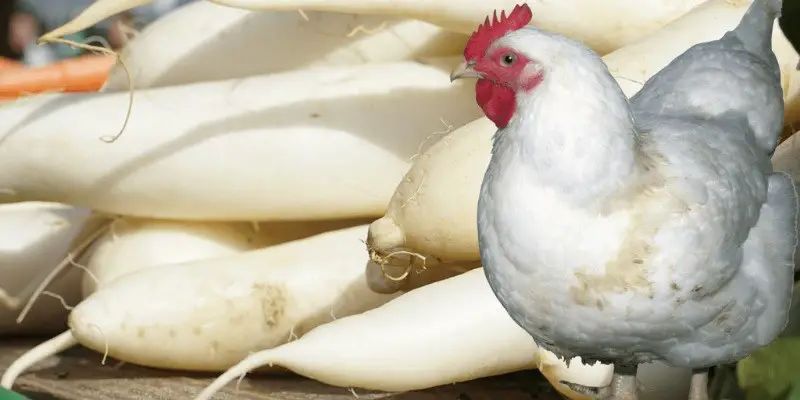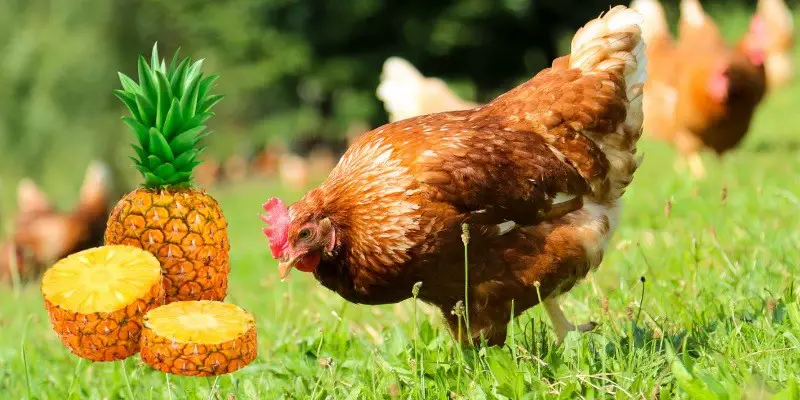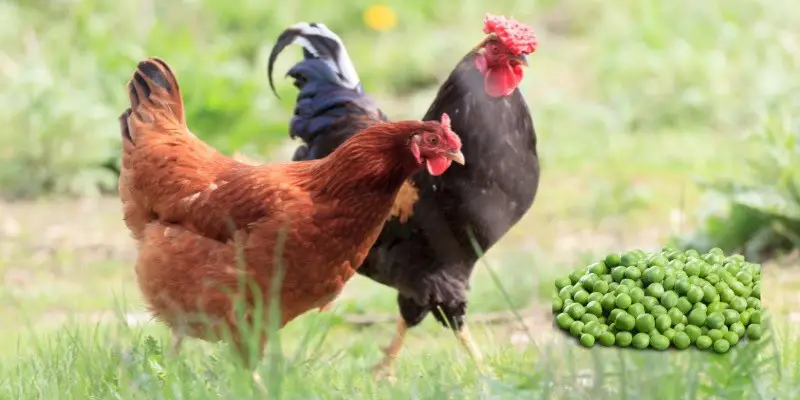If you are a chicken farmer and have a backyard garden with all kinds of fruits and vegetables, a question that will always linger in your mind is whether you can share your fruits and vegetables with your chicken.
Chickens can eat just about anything, but not everything we eat is suitable or safe for chickens. You can give the tasty fruits and vegetables in your backyard to your chickens as treats. What about bell peppers?
Can Chickens Eat Bell Peppers?
Yes. Chickens can eat bell peppers, and they are safe and have good nutritional value. Bell peppers come in three shades green, yellow, and red. The different colors are due to their stage of ripeness, but they are usually from the same type of plant.
In their different colors, they taste different, and their nutritional content is different. Bell peppers belong to the nightshade plant family, which is said to be very toxic to chicken. However, feeding your chicken with ripe bell peppers is perfectly safe, and they will not be a threat to your flock.
Can Chickens Eat Green Peppers?
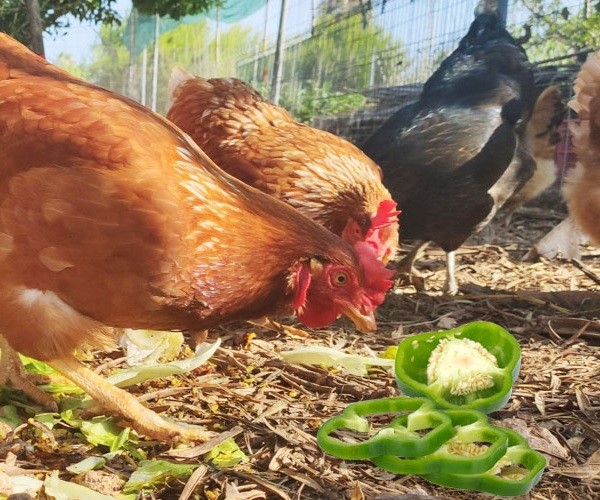
All peppers start as green, and they drastically change their color as they mature and ripen more. When a bell pepper is green, it is usually unripe and has a bitter taste compared to peppers of other colors. Though green bell peppers might not be your flock’s favorite, they are very healthy for them if they enjoy them.
Can Chickens Eat Yellow Bell Peppers?
Once the green bell peppers start to ripen, they turn yellow or orange. They are pretty ripe and taste a bit sweeter at this stage compared to the bitter green bell peppers. The chicken will happily enjoy the yellow bell peppers with their sweet taste.
Can Chickens Eat Red Bell Peppers?
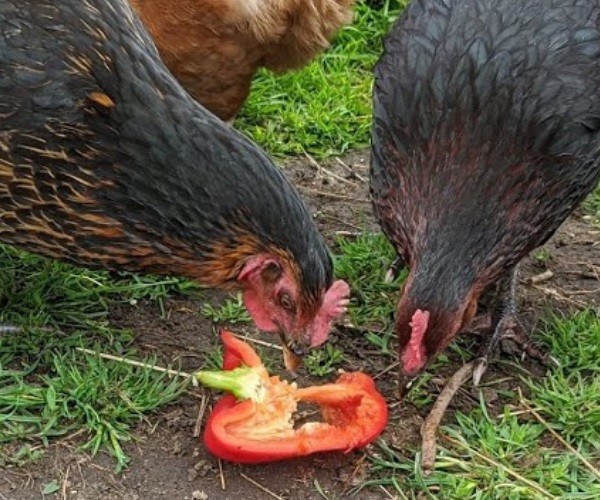
Red bell peppers are in the final stage of maturity and ripeness. They have the sweetest taste, and chickens will enjoy this sweet treat. They also have the best nutritional value compared to their other counterparts.
Chickens can eat bell peppers regardless of their color and stage of ripeness. The red, yellow, or orange bell peppers are more nutritious, and they would be the best choice for your chickens. The ripe colored peppers have carotene, making chickens lay eggs with darker yolks. Not that the darker yolks have additional nutrition, but they make the eggs more appealing and seem nutritious.
Can Chickens Eat Bell Pepper Seeds?
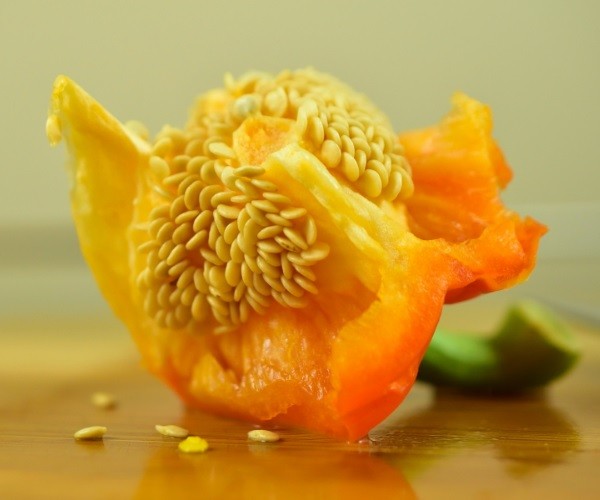
The whole bell pepper fruit consisting of the seeds and core is safe for your chicken. The seeds, in particular, have an outstanding nutritional value that is ideal for your chicken’s health. Unfortunately, many chicken framers usually remove seeds from fruits before feeding the chicken.
The bell pepper seeds are entirely harmless to your chicken. It would be best not to bother removing them while feeding your chicken with bell peppers. They can be served with the bell pepper’s outer flesh, and the chickens will happily devour them.
Are Bell Peppers Stems and Leaves Safe For Chickens?
While the whole fruit of bell pepper is safe and a good treat for your chicken, you should not be tempted to give the rest of the plant to chickens. The bell pepper plant’s leaves, stems, and flowers are toxic and can be lethal to your chickens.
As mentioned earlier, the bell pepper plant belongs to the nightshade and plants like tomatoes and potatoes. These plants produce a natural substance known as solanine, which is toxic to chickens.
Saline helps plants in defense against fungi and pests. It is dominantly available in the stems, leaves, stalk, and flowers of a plant. When a chicken eats solanine, it can cause serious health problems that lead to death. That is why it is not safe to feed your chicken with the stems and leaves of the bell pepper plant.
Effects of Solanine on Chickens
If your chicken consumes solanine from bell pepper stems or leaves by accident, the effects will vary depending on the amount consumed. Common symptoms of solanine, when consumed in small quantities, are diarrhea, convulsions, vomiting, weakness, lethargy, and respiratory issues.
When consumed in small doses, the health problems will be minor. However, taking in large amounts of solanine can cause fatal effects and leads to the chicken’s death. You should avoid giving the bell pepper plant parts with solanine to your chickens.
Health Benefits of Bell Peppers to Chickens
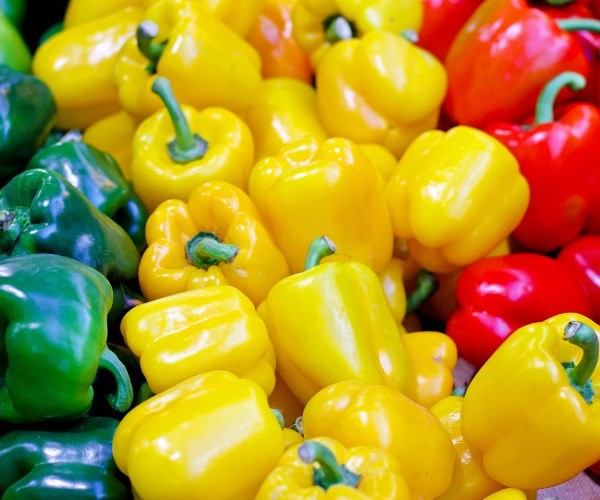
Powerful Antioxidants
Feeding your chicken with bell peppers gives them powerful antioxidants that help them withstand common poultry diseases like bird flu. Antioxidants help create a strong immune system and help chickens recover from illness faster.
Apart from antioxidants, bell peppers have carotene and capsaicin, which improves the chicken’s immune system by offering essential minerals that help them fight any disease they are prone to.
Bell Peppers are Packed with Essential Vitamins and Minerals
The red bell peppers have plenty of beta-carotene, which is converted into vitamin A, antioxidants like vitamin E, and other vitamins like B6 and K1 are present in this fruit. Bell peppers are also rich in vitamin C, which boosts the immune system and helps chickens fight off illness. All these vitamins are vital in maintaining healthy chickens.
Bell peppers are also a rich source of minerals like potassium and folate that helps them produce healthy eggs and keep chickens healthy and strong.
High Water Content
Chickens require a lot of water to produce eggs. Also, when it’s hot outside, they need to stay hydrated. Bell peppers have high water content, and it is a great refreshing treat during summer and sunny days.
How to Feed Bell Peppers to Your Chickens?
Preparing bell peppers for chicken for feeding is an easy task. You can give the whole fruit to the chicken, and they will enjoy pecking. Alternatively, you can cut it into half or smaller pieces for easier consumption. You can also hang the bell peppers in your chicken’s feeding cage, and you will keep them busy as they try to bite them.
Conclusion
Bell peppers are a healthy snack for your chickens. They are rich in nutritional value no matter their color and stage of ripening. However, remember not to feed your chicken with bell pepper stems and leaves, as they are toxic.
Last Updated on January 14, 2025 by Pauline G. Carter


